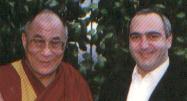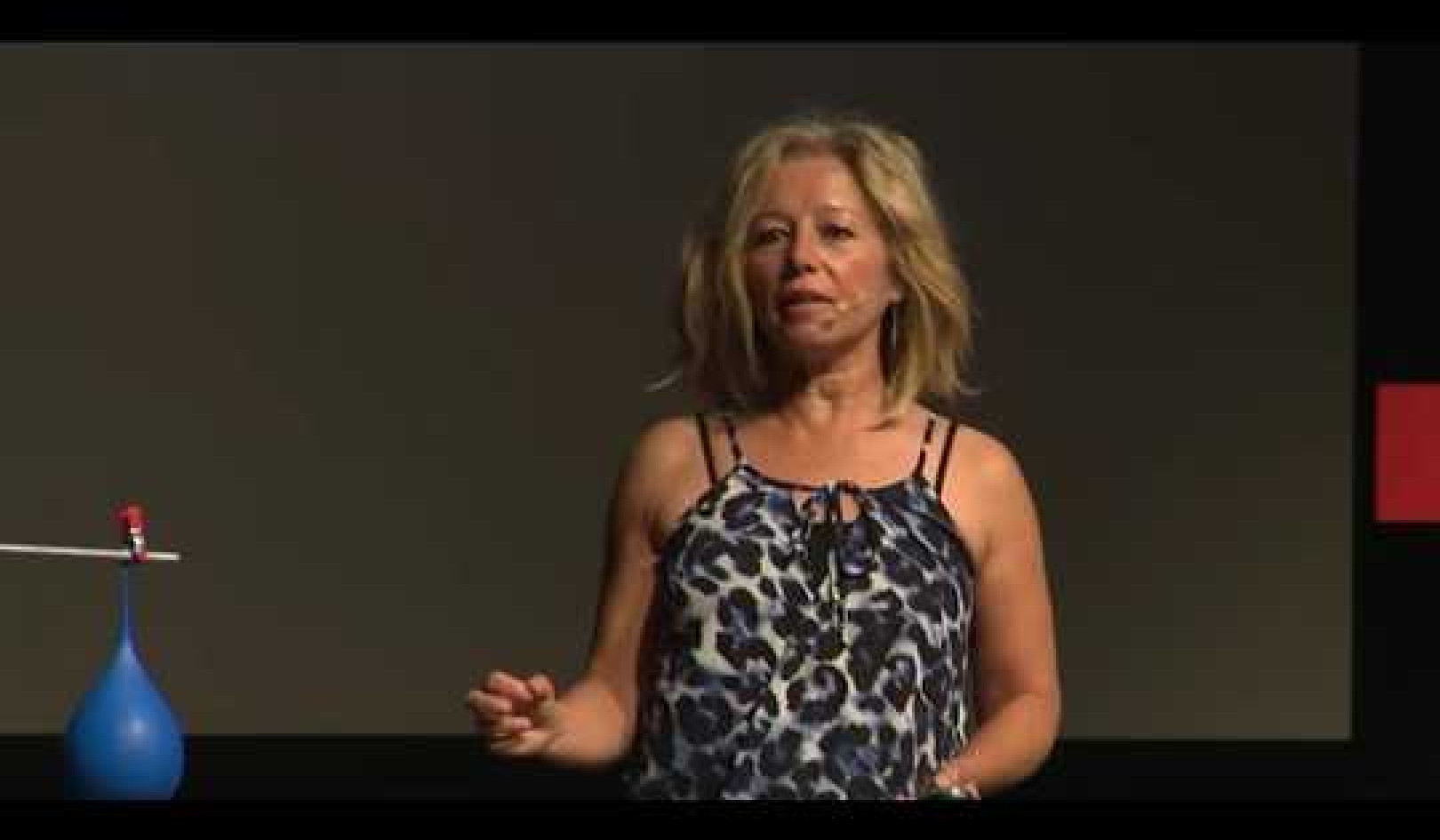
First, I should mention that I do not believe in creating movements or espousing ideologies. Nor do I like the practice of establishing an organization to promote a particular idea, which implies that one group of people alone is responsible for the attainment of that goal, while everybody else is exempt.
In our present circumstances, none of us can afford to assume that somebody else will solve our problems; each of us must take his or her own share of universal responsibility. In this way, as the number of concerned, responsible individuals grows, tens, hundreds, thousands, or even hundreds of thousands of such people will greatly improve the general atmosphere. Positive change does not come quickly and demands ongoing effort. If we become discouraged, we may not attain even the simplest goals. With constant, determined application, we can accomplish even the most difficult objectives.
Adopting an attitude of universal responsibility is essentially a personal matter. The real test of compassion is not what we say in abstract discussions but how we conduct ourselves in daily life. Still, certain fundamental views are basic to the practice of altruism.
Though no system of government is perfect, democracy is that which is closest to humanity's essential nature. Hence those of us who enjoy it must continue to fight for all people's right to do so.
Furthermore, democracy is the only stable foundation upon which a global political structure can be built. To work as one, we must respect the right of all peoples and nations to maintain their own distinctive character and values.
Bringing Compassion into International Business
In particular, a tremendous effort will be required to bring compassion into the realm of international business. Economic inequality, especially that between developed and developing nations, remains the greatest source of suffering on this planet. Even though they will lose money in the short term, large multinational corporations must curtail their exploitation of poor nations.
Tapping the few precious resources such countries possess simply to fuel consumerism in the developed world is disastrous; if it continues unchecked, eventually we shall all suffer. Strengthening weak, undiversified economies is a far wiser policy for promoting both political and economic stability. As idealistic as it may sound, altruism, not just competition and the desire for wealth, should be a driving force in business.
Recommitting to Human Values in Science & Religion
We also need to renew our commitment to human values in the field of modern science. Though the main purpose of science is to learn more about reality, another of its goals is to improve the quality of life. Without altruistic motivation, scientists cannot distinguish between beneficial technologies and the merely expedient.
The environmental damage surrounding us is the most obvious example of the result of this confusion, but proper motivation may be even more relevant in governing how we handle the extraordinary new array of biological techniques with which we can now manipulate the subtle structures of life itself. If we do not base our every action on an ethical foundation, we run the risk of inflicting terrible harm on the delicate matrix of life.
Nor are the religions of the world exempt from this responsibility. The purpose of religion is not to build beautiful churches or temples but to cultivate positive human qualities such as tolerance, generosity, and love. Every world religion, no matter what its philosophical view, is founded first and foremost on the precept that we must reduce our selfishness and serve others. Unfortunately, sometimes religion itself causes more quarrels than it solves.
Practitioners of different faiths should realize that each religious tradition has immense intrinsic value and the means for providing mental and spiritual health. One religion, like a single type of food, cannot satisfy everybody. According to their varying mental dispositions, some people benefit from one kind of teaching, others from another. Each faith has the ability to produce fine, warmhearted people and despite their espousal of often contradictory philosophies, all religions have succeeded in doing so. Thus there is no reason to engage in divisive religious bigotry and intolerance, and every reason to cherish and respect all forms of spiritual practice.
Sowing the Seeds of Greater Altruism in International Relations
Certainly, the most important field in which to sow the seeds of greater altruism is international relations. In the past few years the world has changed dramatically. I think we would all agree that the end of the Cold War and the collapse of communism in Eastern Europe and the former Soviet Union have ushered in a new historical era. It would seem that human experience in the twentieth century has come full circle.
This has been the most painful period in human history, a time when, because of the vast increase in the destructive power of weapons, more people have suffered from and died by violence than ever before. Furthermore, we have witnessed an almost terminal competition between the fundamental ideologies that have always torn the human community: force and raw power on the one hand, and freedom, pluralism, individual rights, and democracy on the other.
I believe that the results of this great competition are now clear. Though the good human spirit of peace, freedom, and democracy still faces many forms of tyranny and evil, it is nevertheless an unmistakable fact that the vast majority of people everywhere want it to triumph. Thus the tragedies of our time have not been entirely without benefit, and have in many cases been the very means by which the human mind has been opened. The collapse of communism demonstrates this.
A Source of Hope & Optimism: Our Great Potential For A Better World
In general, I feel optimistic about the future. Some recent trends portend our great potential for a better world. As late as the fifties and sixties, people believed that war was an inevitable condition of mankind. The Cold War, in particular, reinforced the notion that opposing political systems could only clash, not compete or even collaborate. Few now hold this view. Today, people all over the planet are genuinely concerned about world peace. They are far less interested in propounding ideology and far more committed to coexistence. These are very positive developments.
Also, for thousands of years people believed that only an authoritarian organization employing rigid disciplinary methods could govern human society. However, people have an innate desire for freedom and democracy, and these two forces have been in conflict. Today, it is clear which has won. The emergence of non violent "people's power" movements have shown indisputably that the human race can neither tolerate nor function properly under the rule of tyranny. This recognition represents remarkable progress.
Another hopeful development is the growing compatibility between science and religion. Throughout the nineteenth century and for much of our own, people have been profoundly confused by the conflict between these apparently contradictory world views. Today, physics, biology, and psychology have reached such sophisticated levels that many researchers are starting to ask the most profound questions about the ultimate nature of the universe and life, the same questions that are of prime interest to religions. Thus there is real potential for a more unified view. In particular, it seems that a new concept of mind and matter is emerging. The East has been more concerned with understanding the mind, the West with understanding matter. Now that the two have met, these spiritual and material views of life may become more harmonized.
A Lesson in Universal Responsibility
The rapid changes in our attitude towards the earth are also a source of hope. As recently as ten or fifteen years ago, we thoughtlessly consumed its resources, as if there was no end to them. Now, not only individuals but governments as well are seeking a new ecological order. I often joke that the moon and stars look beautiful, but if any of us tried to live on them, we would be miserable.
This blue planet of ours is the most delightful habitat we know. Its life is our life; its future, our future. And though I do not believe that the Earth itself is a sentient being, it does indeed act as our mother, and, like children, we are dependent upon her. Now mother nature is telling us to cooperate. In the face of such global problems as the greenhouse effect and the deterioration of the ozone layer, individual organizations and single nations are helpless. Unless we all work together, no solution will be found. Our mother is teaching us a lesson in universal responsibility.
I think we can say that, because of the lessons we have begun to learn, this century will be friendlier, more harmonious, and less harmful. Compassion, the seed of peace, will be able to flourish. I am very hopeful. At the same time, I believe that every individual has a responsibility to help guide our global family in the right direction. Good wishes alone are not enough; we have to assume responsibility.
Working To Develop Our Own Altruistic Motivation
Large human movements spring from individual human initiatives. If you feel that you cannot have much of an effect, the next person may also become discouraged and a great opportunity will have been lost. On the other hand, each of us can inspire others simply by working to develop our own altruistic motivation.
I am sure that many honest, sincere people all over the world already hold the views that I have mentioned here. Unfortunately, nobody listens to them. Although my voice may go unheeded as well, I thought that I should try to speak on their behalf. Of course, some people may feel that it is very presumptuous for the Dalai Lama to write in this way. But, since I received the Nobel Peace Prize, I feel I have a responsibility to do so. If I just took the Nobel money and spent it however I liked, it would look as if the only reason I had spoken all those nice words in the past was to get this prize! However, now that I have received it, I must repay the honor by continuing to advocate the views that I have always expressed.
I, for one, truly believe that individuals can make a difference in society. Since periods of great change such as the present one come so rarely in human history, it is up to each of us to make the best use of our time to help create a happier world.
Reprinted with permission of the publisher,
Wisdom Publications, www.wisdompubs.org
Article Source
Imagine All the People: A Conversation with the Dalai Lama on Money, Politics, and Life as it Could Be
by the Dalai Lama with Fabien Ouaki.
 Blessed by His Holiness' buoyant and insightful thoughts, Imagine All the People allows readers to glimpse the spontaneous workings of an extraordinary mind at once of - and above - this world. Covered are a wide spectrum of topics - political, social, personal and spiritual - including the media and education, marriage and sex, and disarmament and compassion. Includes the full text of The Global Community and the Need for Universal Responsibility.
Blessed by His Holiness' buoyant and insightful thoughts, Imagine All the People allows readers to glimpse the spontaneous workings of an extraordinary mind at once of - and above - this world. Covered are a wide spectrum of topics - political, social, personal and spiritual - including the media and education, marriage and sex, and disarmament and compassion. Includes the full text of The Global Community and the Need for Universal Responsibility.
Click here for more Info or to Order this book. Also available as a Kindle edition.
About The Authors
 Venerable Tenzin Gyatso, who describes himself as a "simple Buddhist monk," is the spiritual and the temporal leader of the Tibetan people. Known more popularly in the West as the Dalai Lama, he attained worldwide recognition in 1989 when he was awarded the Nobel Peace Prize for his dedication to a non-violent struggle for the liberation of Tibet. Speaking and writing eloquently on the need for a commitment to compassion and a sense of universal responsibility, the Fourteenth Dalai Lama frequently visits Europe and North America.
Venerable Tenzin Gyatso, who describes himself as a "simple Buddhist monk," is the spiritual and the temporal leader of the Tibetan people. Known more popularly in the West as the Dalai Lama, he attained worldwide recognition in 1989 when he was awarded the Nobel Peace Prize for his dedication to a non-violent struggle for the liberation of Tibet. Speaking and writing eloquently on the need for a commitment to compassion and a sense of universal responsibility, the Fourteenth Dalai Lama frequently visits Europe and North America.
Fabien Ouaki is the chairman and chief executive of the Tan group, which employs seventeen hundred people worldwide. Forty years old and father of four, he was drawn to Tibetan Buddhism after meeting Kalu Rinpoche fourteen years ago. In 1994 Fabien organized a forum on business and ethics in Paris, which included His Holiness the Dalai Lama. Fabien is convinced that human values can operate in the world of business and finance and that mutual interest and universal responsibility are essential for the economics of tomorrow. He may well be the archetype of the business leader of the third millennium.
Books by the Dalai Lama
at InnerSelf Market and Amazon
























